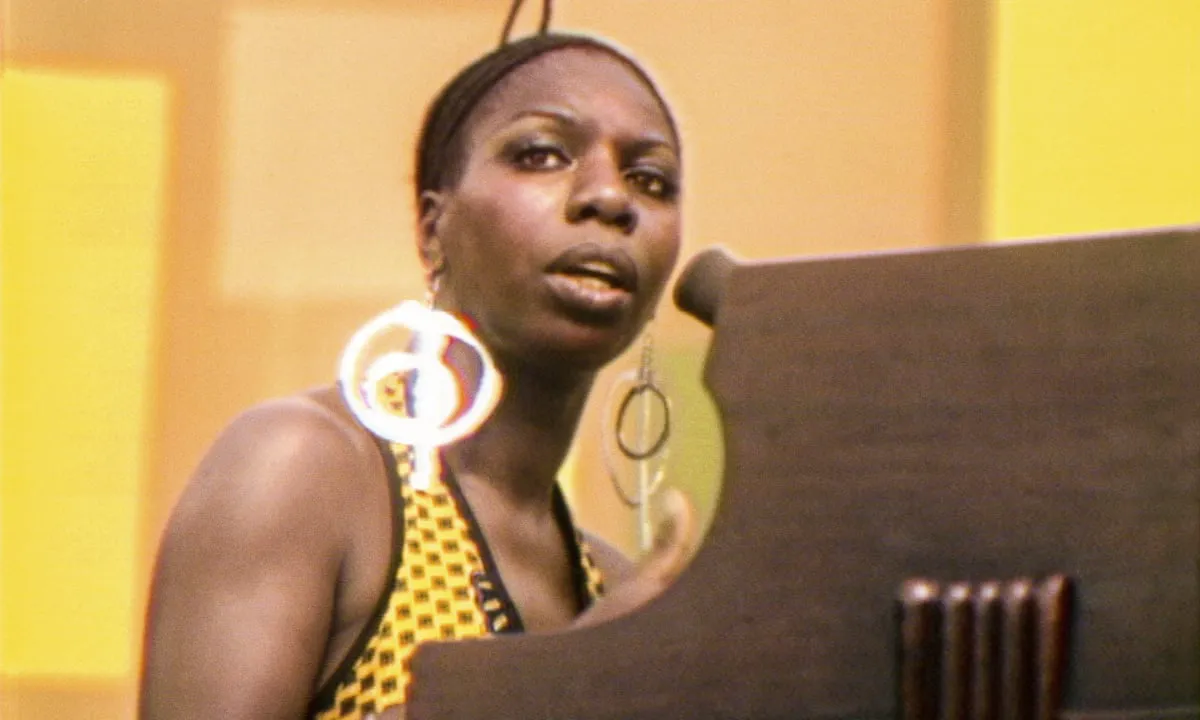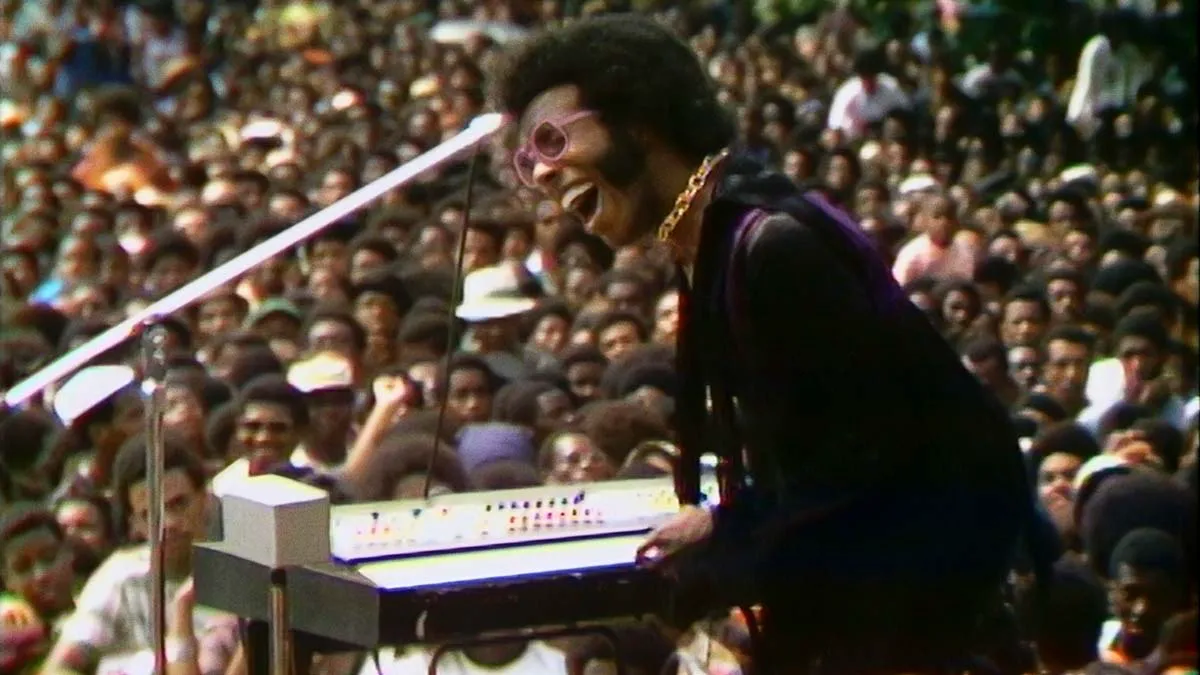Summer of Soul: A Rediscovered Chapter of Music and Activism
In the summer of 1969, New York City was the stage for the Harlem Cultural Festival, a vibrant celebration of Black music and culture. Featuring iconic performers like Nina Simone, Stevie Wonder, and B.B. King, the festival was a powerful testament to the Black experience. However, the footage of these electrifying performances was largely forgotten, relegated to the archives for decades. Now, over 50 years later, director and DJ Amir “Questlove” Thompson resurrects this invaluable archive in “Summer of Soul (…Or, When the Revolution Could Not Be Televised),” offering a timely reflection on the political and social landscape of then and now.

Still from “Summer of Soul”
The Harlem Cultural Festival drew crowds of 40,000 to 50,000 people each week. While predominantly African American, the audience also included a significant number of other minority groups, such as Puerto Ricans and South Africans. Living in the United States at that time, many of these individuals faced systemic disenfranchisement, enduring daily struggles against police brutality, protesting the Vietnam War, battling drug addiction, and constantly fighting for recognition and respect. The Harlem Cultural Festival, predating Woodstock, mirrored its spirit of musical diversity, showcasing a rich tapestry of genres including soul, funk, rhythm and blues, Motown, gospel, and rock and roll.
More Than Just Music: A Cultural Revelation
“Summer of Soul” is more than just a concert film; it’s a cultural revelation. It allows us to witness a forgotten chapter of history and draw parallels to contemporary issues. The film highlights the importance of speaking out against injustice, even when faced with potential repercussions. Nina Simone’s powerful performance, a highlight of the film, embodies this spirit of resistance, challenging the status quo and calling for action. Juxtaposed with the moon landing, the film captures the sentiments of festival attendees who questioned the allocation of resources, suggesting that the money spent on space exploration could have been used to address poverty and the drug epidemic plaguing their communities. All this against the backdrop of the Vietnam War, where young men were being sent to fight and often not returning, a reality depicted in numerous films by directors like Coppola and Stone.

A Beacon of Hope and Healing
Despite the challenges and hardships, “Summer of Soul” offers a message of hope and resilience. It captures the raw energy and euphoria of the festival, allowing viewers to experience the joy and catharsis of music that was previously hidden from the world. As one festival attendee recalls, “Black people didn’t have psychologists, couches, or therapists. They had gospel.” The 1960s were marked by the assassinations of visionary leaders who fought for a more just and equitable society: John F. Kennedy, Malcolm X, Robert Kennedy, and Martin Luther King Jr. King’s favorite song, the gospel hymn “Take My Hand, Precious Lord,” serves as a poignant reminder of the power of faith and perseverance in the face of adversity. This spirit of resistance is further emphasized by the film’s subtitle: “…Or, When the Revolution Could Not Be Televised.”
A Legacy of Music and Activism
The film’s montage of archival footage and contemporary interviews creates a powerful sense of connection between the past and the present. The tears of nostalgia shed by those who attended the festival, combined with the creation of new history in the present moment, highlight the enduring legacy of music and activism. “Summer of Soul” is a testament to the transformative power of music and the unwavering spirit of a community that refused to be silenced.